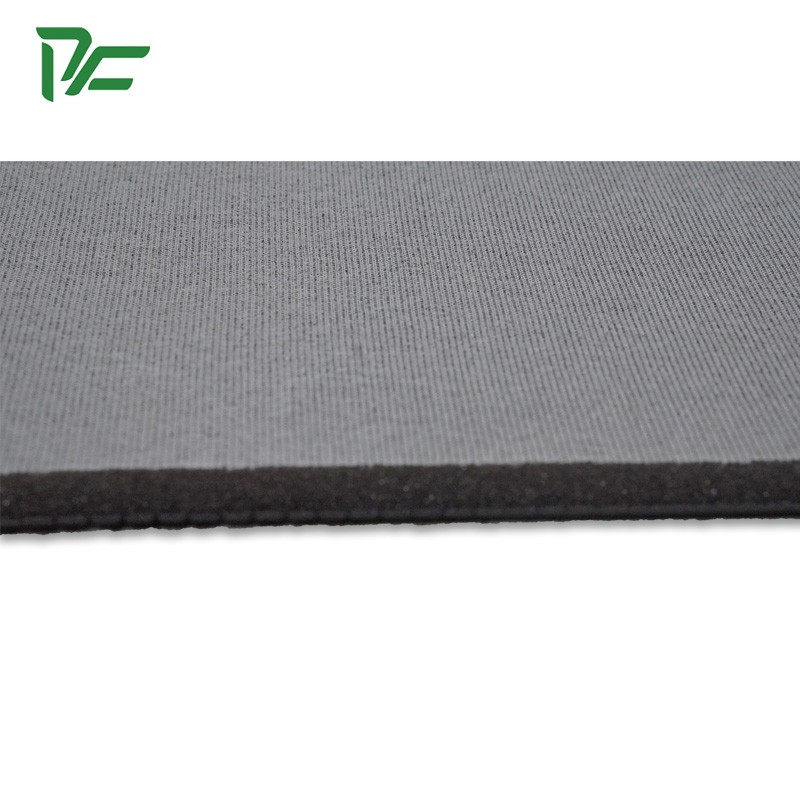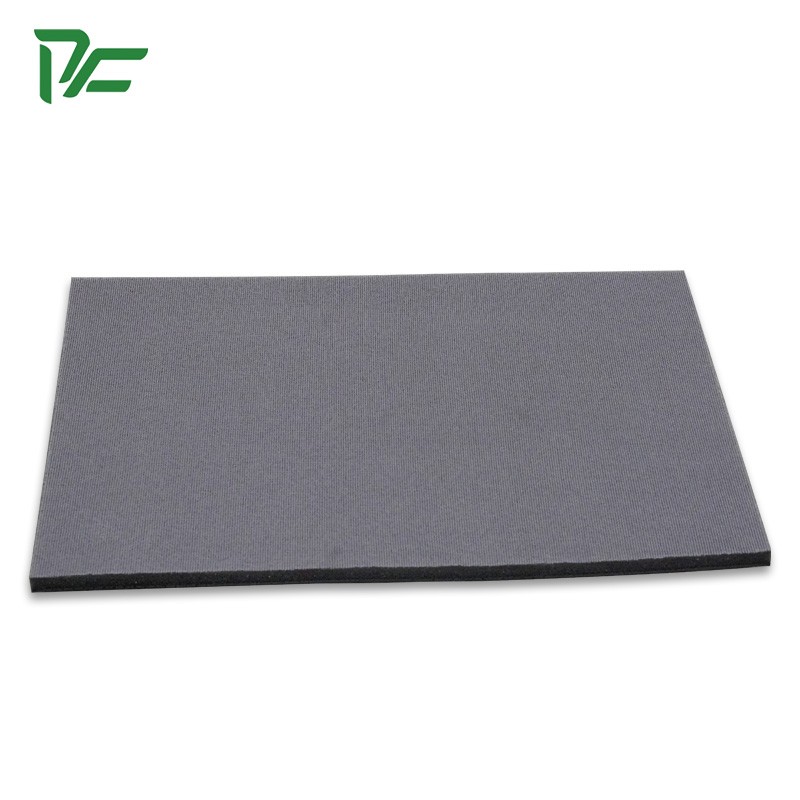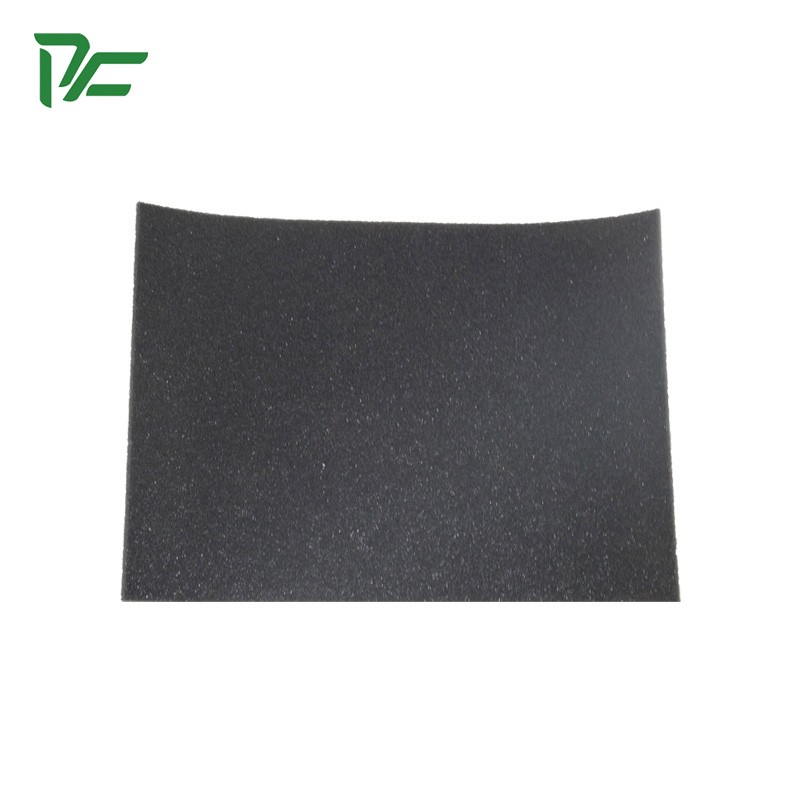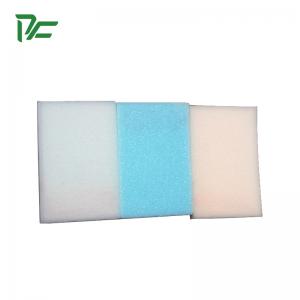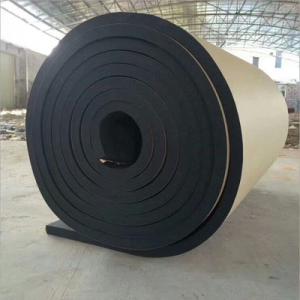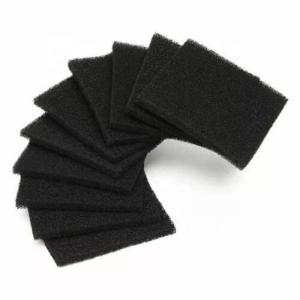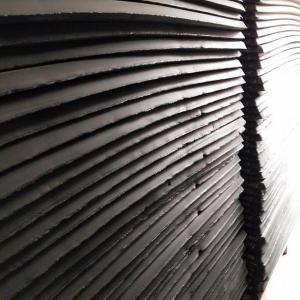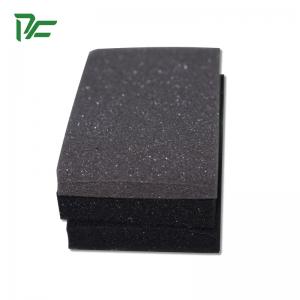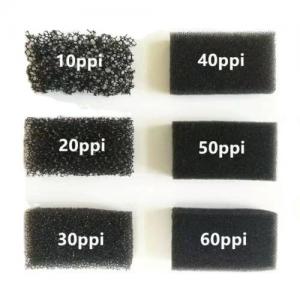Closed Cell Neoprene Sponge Rubber High-Performance Gasket Material
Closed Cell Sponge Rubber
The technically correct term for closed cell sponge rubber is expanded rubber. The cells are like individual balloons, holding gas and not allowing moisture to pass through as long as the cell wall has not burst. The raw compound is mixed on the same type of equipment used to mix solid rubber compounds, but a chemical blowing agent is also added. Under the heat and pressure of a pre-cure or pre-forming process, this additive decomposes and mixes with the rubber compound and generates nitrogen gas. As this reaction is occurring, the mixed batch is placed into an oven and allowed to expand into a bun from 2″ to 4″ thick. The bun of closed cell sponge rubber is then aged and split into sheets typically from .062″ thick and greater.
Constant deflection of closed cell sponge rubber may cause the gas to permeate through the cell walls. Over compression of the closed cell sponge such as beyond 50 – 70% deflection, may cause the cells to burst. When a closed cell sponge gasket has been over compressed, the gasket may rebound very slowly, or not at all, compromising the integrity of the gasket. Most closed cell sponge gaskets should be deflected 20 – 35% for optimal sealing performance. These properties are discussed in ASTM D1056, ASTM D6576 and Mil-R-6130C.
Closed Cell Neoprene Sponge Rubber
Produced from 100% neoprene polymer, most closed cell neoprene sponge products meet UL 94HF-1 flame rating. They are generally serviceable from -40°F to 158°F continuous and withstand 200°F intermittently. Premium closed cell neoprene sponge products will resist light oil contact, ozone, alkalis and acids, making them a good choice for general enclosure door gaskets.
Closed Cell Blended Sponge Rubber
Produced from a blend of neoprene, EPDM and SBR, these grades are the most frequently supplied for general purpose sponge gaskets. If a commercial closed cell neoprene sponge gasket is requested, this would likely be supplied. These products also normally meet UL 94HF-1 and will take -70°F without cracking due to cold embrittlement. The oil resistance will not be as good as on the 100% neoprene sponge products.
Closed Cell EPDM Sponge Rubber
Closed cell EPDM sponge materials will not meet the UL flame rating without additives and they will not withstand oils or fuels. However, they will stand up to outdoor conditions such as water, ozone and indirect sunlight better than neoprene.
Closed Cell Epichlorohydrin (ECH) Sponge Rubber
These closed cell ECH sponge materials are often specified for under-the-hood automotive gasket applications due to their ability to handle continuous temperatures of 300°F and some light oil and fuel contact. ECH also has very good resistance to weather, ozone, sunlight and oxidation.
Ensolite Vinyl Nitrile / Neoprene
These blends of closed cell sponge are versatile, having a temperature range of -40°F to 180°F, and availability in 50 foot continuous rolls for gasketing. Certain Ensolite products have flame ratings of UL 94V-0 and UL 94HF-1 depending on thickness. They tend to have slightly lower density than most closed cell sponge products, and the water absorption properties are slightly higher than closed cell neoprenes.
Description
Closed Cell Sponge Rubber
Closed Cell Neoprene Sponge Rubber
Closed Cell Hybrid Sponge Rubber
Technical Term
Expanded Rubber
Closed Cell Neoprene Sponge Rubber
Closed Cell Hybrid Sponge Rubber
Gas Retention
Gas-tight, no moisture transmission as long as cell walls remain intact
Gas-tight, no moisture transmission as long as cell walls remain intact
Gas-tight, no moisture transmission as long as cell walls remain intact
Manufacturing Process
Mixing of rubber compound with chemical blowing agent, pre-cure or pre-forming process to expand, aging and splitting into sheets
Made from 100% neoprene polymer
Blend of neoprene, EPDM, and SBR
Application Suitability
General purpose gasket material
Good choice for enclosure door gaskets in high temperature, high humidity, and high chemical environments
General purpose gasket material
UL Flame Rating
No standard flame rating
UL 94HF-1 flame rating
No standard flame rating
Operating Temperature Range
-40°F to 158°F continuous use, 200°F intermittent use
-40°F to 158°F continuous use, 200°F intermittent use
-40°F to 158°F continuous use, 200°F intermittent use
Oil Resistance
No specific oil resistance requirements
Good oil resistance, suitable for general enclosure door gaskets
Good oil resistance, suitable for general enclosure door gaskets
Other Properties
Can be used in various sealing applications such as door seals and window seals. Needs moderate compression for best sealing performance. Available in various thicknesses and sizes. Complies with ASTM D1056, ASTM D6576, and Mil-R-6130C standards.
Suitable for applications that require high flame resistance. Good resistance to light oil, ozone, alkalis, and acids. Can be used in various enclosure door gasket applications. Available in various thicknesses and sizes. Customizable according to customer needs. Can be used in conjunction with other elastomer materials for improved performance.
Combines the advantages of neoprene, EPDM, and SBR. Suitable for applications that require higher temperatures and chemical resistance. Available in various thicknesses and sizes. Customizable according to customer needs. Can be used in conjunction with other elastomer materials for improved performance.

